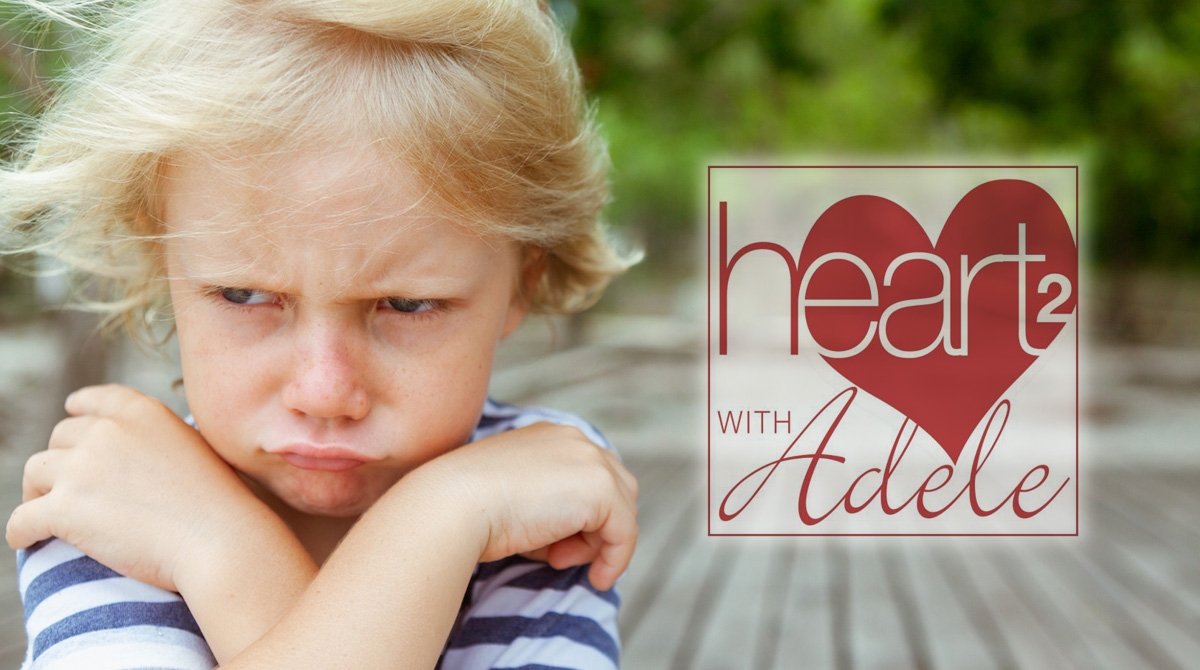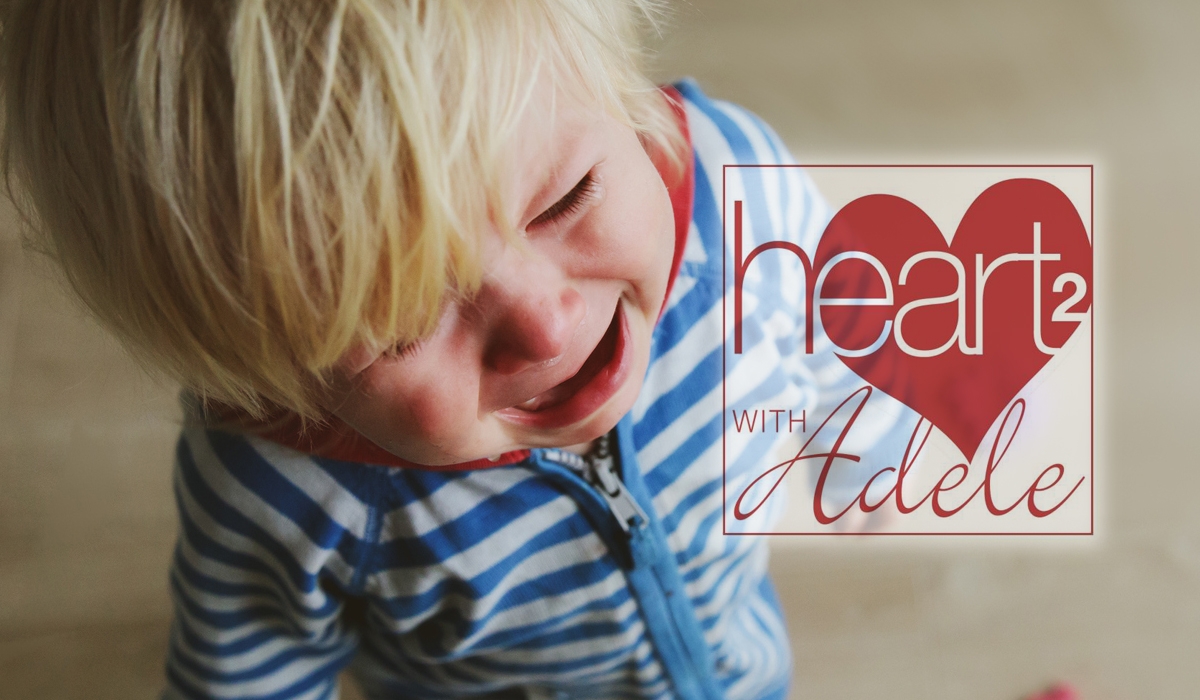
Win the war on whining and create a peaceful, cooperative family
QUESTION
Dear Adele,
Our two young children are driving us bonkers with whining. We need to bolster the troops to win the war on whining. Whether it’s the battle about bedtime, the demand for more chocolate brownies, or the desire to watch just one more television show, the children whine. The Generals try to resist, but admittedly occasionally cave. Can you share your ideas on how we can win the war on whining, eliminate it and have a more peaceful, cooperative family?
The Generals
ANSWER
Dear Generals,
Whining is a very annoying and frustrating child behaviour that is extremely common. When left unchecked, it persists and produces whining adults. Children become very adept at using whining as a technique to get their way, because it works! That high pitched grating sound becomes so irritating and so persistent that few parents can tolerate it for very long. Exasperated with the whining, they on occasion give in to the child’s demands in order to terminate it. Children learn early that if they keep the whining up long enough, more often than not, they can end up with the win.
An interesting article by Erin Layba in Psychology Today, entitled ‘Five great ways to respond to kids whining’ summarizes science-based reasons why children whine. Once you understand these reasons it becomes much clearer about how to win the war on whining.
Firstly, you need to comprehend that a whine is “an urgent request for a resource or comfort”. Children become stressed, and have physical needs such as hunger and thirst. They get tired and grumpy when they are out of routine. When they are exhausted, they run out of words, put the crying on the back burner and try the whine. If this is the reason that your child is whining, you need to ask yourself what your child needs and then respond.
Sometimes, children whine because they need a better connection with the parent. When a family environment is negative, research has shown that children cry and whine more, especially when negativity comes from the father. The answer here is to augment the amount of quality time with the child. Psychologists often call this ‘Special Time’, which is one-on-one time with the little one. It is child centered and child directed. Special time is offered for 10 to 20 minutes on a daily basis and allows the parent and offspring to develop a greater bond and better connection. If this is the reason for your boy or girl whining, take a look at the stress levels in your home and the amount of quality time provided in your family environment.
Other times, children whine to express their feelings. Given ample opportunity to express feelings such as sadness, disappointment or anger, the child’s need to whine is reduced. Early childhood educator Janet Lansbury suggests that parents “accept acknowledge and support kids in their feelings instead of correcting, scolding or controlling them.” Implementing Lansbury’s advice, with understanding, patience and kindness, might help reduce whining in your family.
In some families, children whine because of their natural sensitive or feisty temperament. Psychologists divide temperaments into three categories: easy, feisty and cautious. They say some children are born with a predisposition for stronger reactions, greater anxiety or stronger wills. While children like this can be taught how to deal with problems better, it can be a long process and demands greater patience.
Finally, Layba says that children may whine because of variable reinforcement. Skinner found that behaviour is repeated for longer periods of time with variable rate reinforcement. In other words, when you cave once in a while, the behaviour you hope to eliminate will be prolonged, for the same reward. If you find yourself doing this, check your consistency. Occasional caving can result in weeks of whining to follow. Catching them when they’re good and rewarding that comportment, can help diminish whining.
Amy Morin, in ‘Six steps to put an end to whining’ offers a few ideas that are concrete to eliminate whining. She understands that whining is very annoying to adults, that it wears them down and gets the children the results they want. Amy suggests the following ideas:
- Establish household rules about whining. Be sure all caregivers follow the same rules.
- Provide a warning statement such as “No whining!”
- Stay calm and don’t cave.
- Ignore whining as attention seeking behaviour.
- Provide positive attention when the behaviour is good.
- Teach children about feelings and emotions, and how to express them positively.
Amy McCready of Positive Parenting Solutions offers some ideas on how to stop whining in ‘Why do kids whine? Three steps to make it stop.’ This parenting expert suggests that children “whine because they haven’t learned a positive productive way to get our attention or have their needs met.” Whining gets some children what they want or need, while comments from the parents give them attention and connection. McCready’s three steps to stop the whining are as follows:
- Say “No” and stick to it. Be consistent and do not cave.
- Pay no attention. Ignore the whining.
- Provide proactive positive attention, regularly meeting the child’s emotional needs for connection.
I wish you the best at winning the war about whining in your house, Generals. Here are a few quotations which might serve to inspire you during the battles:
“Do not let the behaviour of others destroy your inner peace.” — Dalai Lama
“The very fact you worry about being a good mother means you already are one.” — Jodi Picoult
“Every father should remember that one day his son will follow his example, instead of his advice” — Unknown
Sincerely, Adele
I'm looking forward to your questions! Email me at maryadeleblair@gmail.com and please put Heart to Heart in the subject line. Note that all columns will remain anonymous.
Photo: iStock












